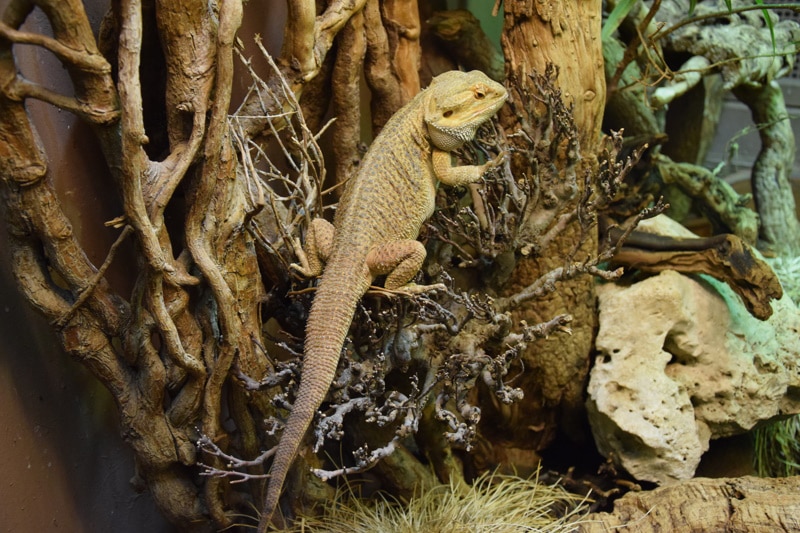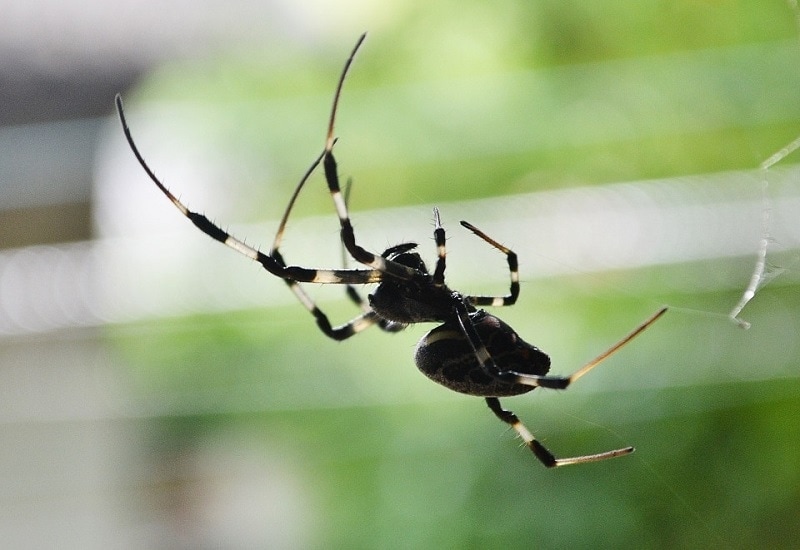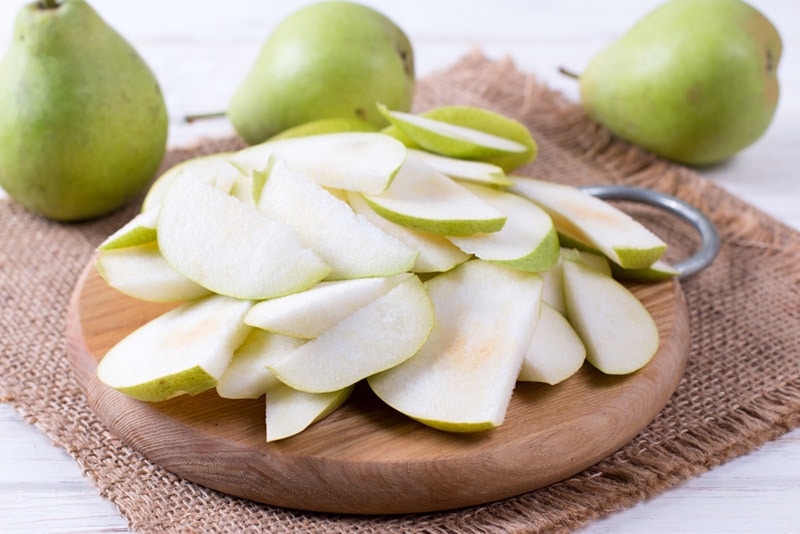Do Bearded Dragons Have Teeth? Lizard Anatomy Explained
By Kit Copson
Updated on
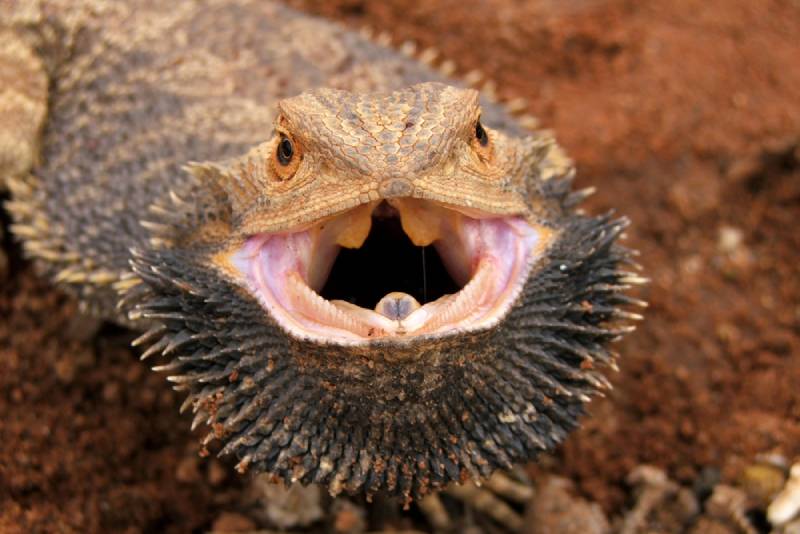
Though they may be tiny and somewhat inconspicuous, bearded dragons do have teeth, and they have them from birth. Like Asian water dragons, Australian water dragons, Old World chameleons, and frilled dragons, the bearded dragon has a very special type of dentition, which is called “acrodont dentition.”
In this post, we’ll explain what acrodont dentition is, the potential dental issues in bearded dragons, and whether or not these lizards are known for biting.
What Is Acrodont Dentition?
Lizards with acrodont dentition, like the bearded dragon, have tiny, sharp, triangular-shaped teeth that are fused to the jawbone. Their teeth don’t have roots like ours do, and, they can be easily damaged. Once breakage occurs, the tooth cannot be replaced. Acrodont teeth are famous among vets and reptile experts for their fragility.
Unfortunately, lizards with acrodont teeth are also at risk of dental health conditions, like bacterial and fungal infections. Another risk for bearded dragons is periodontal disease, which is a condition more common in captive bearded dragons than those in the wild.
Periodontal Disease in Bearded Dragons
Dental health is something all bearded dragon owners should monitor carefully due to the risk of periodontal disease and related conditions. Periodontal disease is caused by a variety of factors, including oral infections caused by a buildup of plaque, poor nutrition (such as too many soft foods), and damage or weakening due to behaviors like rubbing or bumping the nose against the tank’s glass.
Another potential cause of periodontal disease is nutritional secondary hyperparathyroidism (also known as metabolic bone disease), which is caused by a lack of calcium or vitamin D3, an excess of phosphorus, or not enough UVB light.1
Periodontal disease is connected to a number of serious dental issues, including tooth recession and infections that occur deep within the bone. It’s always a good idea to be proactive about dental disease by speaking to your veterinarian about it, especially as this is quite a common condition in bearded dragons.
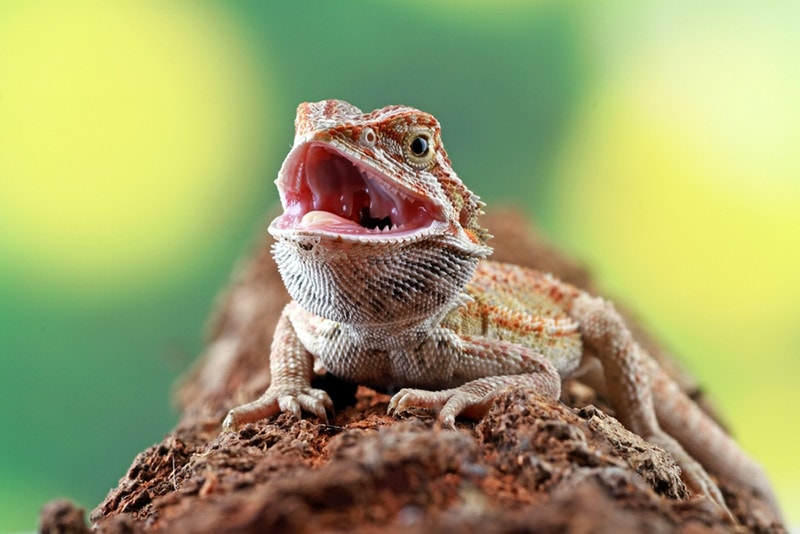
What Are the Signs of Periodontal Disease?
In 2020, the UC Davis veterinary hospital treated a 5-year-old bearded dragon named Rex for dental disease. Rex’s treatment, which consisted of a dental cleaning, supportive care, antibiotics, anti-inflammatories, and a special scaling procedure, was successful. The signs and symptoms that first brought Rex into the clinic were described as follows:
- Lack of appetite
- Unwillingness to drink
- Lethargy
- An unhealthy-looking mouth
Once at the hospital, the veterinarians treating Rex the bearded dragon found the following giveaway signs of periodontal disease:
- Gum inflammation
- Gum line recession
- Exposed bone on the jaws
- Plaque buildup
- Discolored teeth

How Can I Prevent Periodontal Disease?
Feeding an appropriate diet and avoiding offering too many soft foods, like fruits and soft insects (mealworms, for example), can contribute to better dental health in bearded dragons. Crunchy foods help to keep plaque under control and keep the teeth cleaner. You can also brush your bearded dragon’s teeth frequently.
Do Bearded Dragons Bite?
Bearded dragons aren’t known for aggression toward people; they’re typically quite friendly and mellow lizards. However, a bearded dragon may bite when frightened, hurt, or confused. This is why it’s so important to be gentle with bearded dragons and teach any youngsters at home to be respectful of them, too.
If you’re sensible and respectful when handling your beardie and handle them often from when they’re young, they should grow to feel comfortable around you and not bite. If you’ve only recently brought a bearded dragon home, it’s normal that they might feel a bit uneasy around you, so go slowly and be patient.
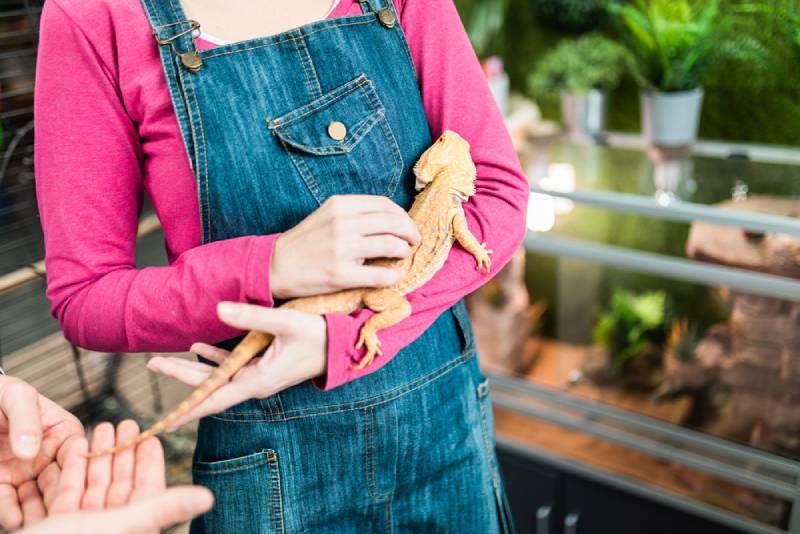
 Final Thoughts
Final Thoughts
To recap, bearded dragons do indeed have teeth, but don’t worry—they’re not big biters and will only get the chompers out on you if they feel threatened or afraid or aren’t handled regularly. Periodontal disease, a common beardie condition, is a much bigger concern for bearded dragon owners, so be sure to check your bearded dragon’s mouth often for any signs of disease, and speak to your vet if you spot any.
Featured Image Credit: Ashley Whitworth, Shutterstock

